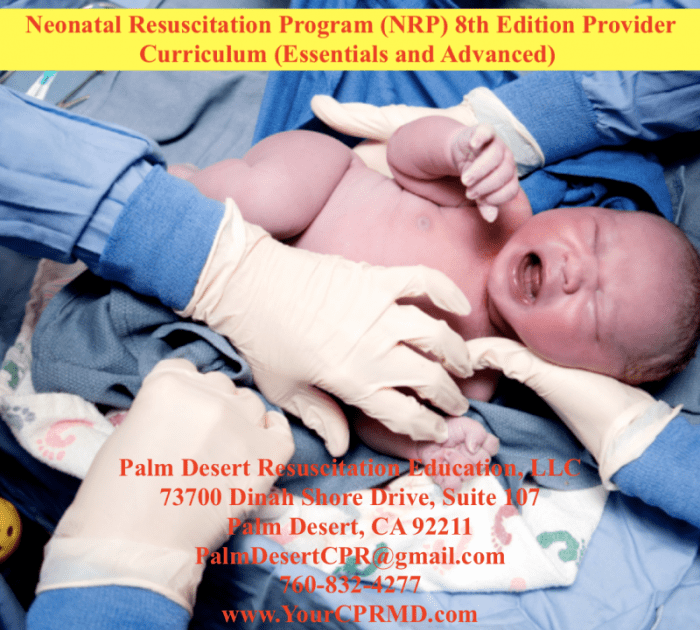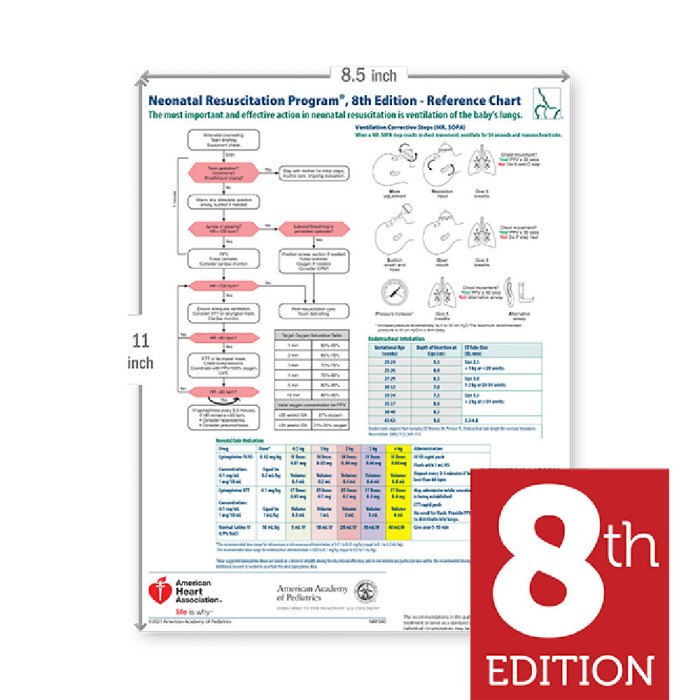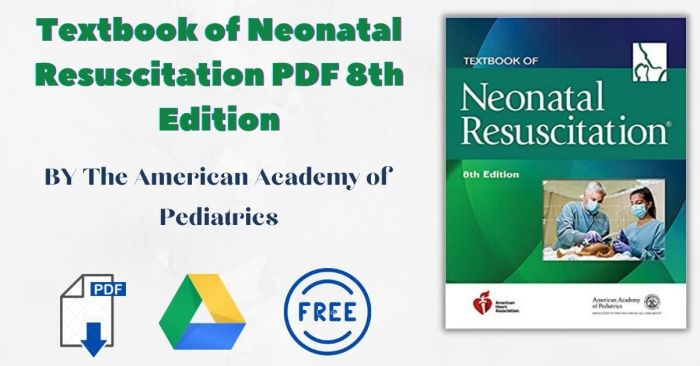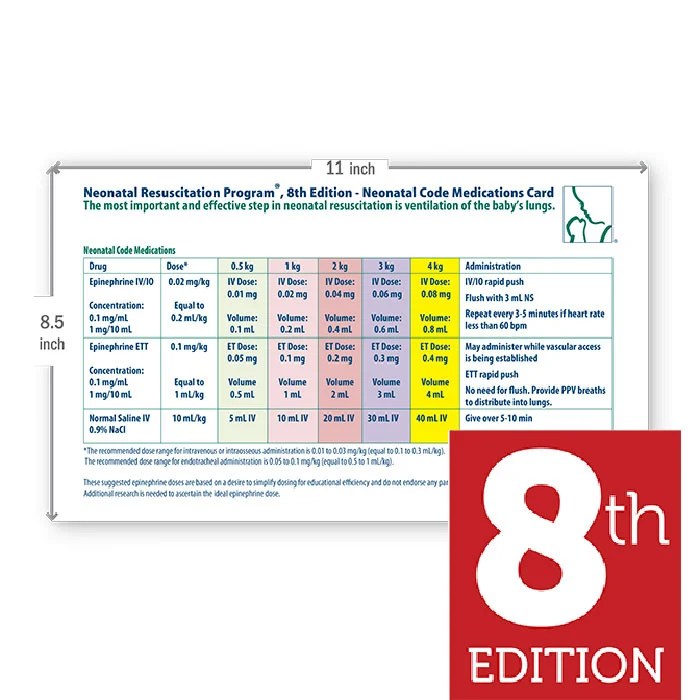According to the textbook of neonatal resuscitation 8th edition – According to the Textbook of Neonatal Resuscitation (8th Edition), neonatal resuscitation is a critical and time-sensitive procedure that requires a systematic and evidence-based approach. This comprehensive guide Artikels the latest guidelines and techniques for the assessment, resuscitation, and post-resuscitation care of newborns, empowering healthcare providers with the knowledge and skills to ensure optimal outcomes for these vulnerable patients.
The NRP guidelines provide a standardized framework for neonatal resuscitation, ensuring consistent and effective care across different healthcare settings. They emphasize the importance of teamwork, communication, and ongoing education to improve the quality of resuscitation and enhance patient safety.
Introduction

The 8th edition of the Textbook of Neonatal Resuscitation (NRP) is a comprehensive guide to the latest evidence-based practices for the resuscitation of newborns. It provides healthcare providers with clear and concise instructions on how to assess and manage newborns in need of resuscitation.
The NRP guidelines are designed to improve the survival and long-term outcomes of newborns by standardizing resuscitation techniques and ensuring that all healthcare providers have the necessary knowledge and skills to provide effective resuscitation.
Initial Assessment and Resuscitation

The initial assessment of a newborn involves evaluating the baby’s breathing, heart rate, and color. The Apgar score is a tool used to assess the newborn’s overall condition at 1 and 5 minutes after birth.
Neonatal resuscitation involves providing assisted ventilation and chest compressions if the newborn is not breathing or has a heart rate below 60 beats per minute. The goal of resuscitation is to establish and maintain a stable airway, breathing, and circulation.
Advanced Resuscitation

Advanced resuscitation measures are indicated when the newborn does not respond to initial resuscitation efforts. These measures may include the use of medications, such as epinephrine and sodium bicarbonate, and the use of equipment, such as a mechanical ventilator.
Specific neonatal emergencies that may require advanced resuscitation include respiratory distress syndrome, hypoglycemia, and congenital heart defects.
Post-Resuscitation Care

Post-resuscitation care is essential for ensuring the long-term health and well-being of the newborn. This care includes monitoring the newborn’s vital signs, providing respiratory support if needed, and managing any complications that may arise.
Potential complications of neonatal resuscitation include hypothermia, hypoglycemia, and seizures. Long-term outcomes of neonatal resuscitation can include cerebral palsy, developmental delays, and learning disabilities.
Special Considerations
Neonatal resuscitation for premature and critically ill newborns requires special considerations. These newborns are more likely to have respiratory distress, hypoglycemia, and other complications.
Ethics and decision-making play a critical role in neonatal resuscitation. Healthcare providers must balance the benefits and risks of resuscitation and make decisions that are in the best interests of the newborn.
Ongoing education and training are essential for healthcare providers involved in neonatal resuscitation. This ensures that healthcare providers have the latest knowledge and skills to provide effective resuscitation.
Query Resolution: According To The Textbook Of Neonatal Resuscitation 8th Edition
What are the key changes in the 8th Edition NRP guidelines?
The 8th Edition NRP guidelines include updates on resuscitation techniques, such as the use of continuous positive airway pressure (CPAP) and the timing of chest compressions. They also emphasize the importance of family-centered care and shared decision-making.
What is the role of the Apgar score in neonatal resuscitation?
The Apgar score is a quick and simple assessment tool used to evaluate the newborn’s condition at 1 and 5 minutes after birth. It helps identify infants who need immediate resuscitation and provides a baseline for monitoring their progress.
What are the common complications of neonatal resuscitation?
Potential complications of neonatal resuscitation include brain injury, seizures, and respiratory problems. The risk of complications is higher in premature and critically ill newborns.